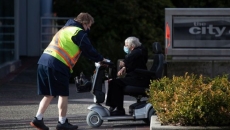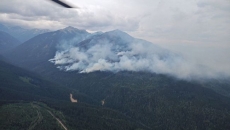Three tobacco giants are proposing to pay close to $25 billion to provinces and territories and more than $4 billion to some 100,000 Quebec smokers and their loved ones as part of a corporate restructuring process triggered by a long-running legal battle.
The companies — JTI-Macdonald Corp., Rothmans, Benson & Hedges and Imperial Tobacco Canada Ltd. — filed a proposed plan of arrangement in an Ontario court today after more than five years of negotiations with their creditors.
The companies sought creditor protection in Ontario in early 2019 after they lost an appeal in a landmark court battle in Quebec.
The Ontario court put all legal proceedings against the companies on hold as they tried to work out a deal with their creditors, which include the plaintiffs in two Quebec class-action lawsuits as well as provincial governments seeking to recover smoking-related health-care costs.
Under the proposed plan filed Thursday, provinces and territories would receive payments over time, with roughly $6 billion to be paid out at the time the deal is implemented.
The Quebec plaintiffs would file claims for compensation of up to $100,000 each.
The proposed plan also includes more than $2.5 billion for smokers in other provinces and territories who were diagnosed with lung cancer, throat cancer or chronic obstructive pulmonary disease between March 2015 and March 2019.
It would also see the companies pour more than $1 billion into a foundation to fight tobacco-related diseases.
The proposal must still go through several steps before it can be put into action, including a vote by creditors and approval by the court.
Negotiations between the companies and their creditors were confidential, and several health care groups argued the lack of transparency surrounding the talks would benefit the companies at the expense of other stakeholders.
As recently as last month, three groups – Action on Smoking & Health, Physicians for a Smoke-Free Canada and the Quebec Coalition for Tobacco Control – said recent court filings suggested the provinces had agreed to a process that would give the companies veto power over the final deal.
The groups have consistently urged the provinces to impose regulations and smoking-reduction measures as part of a deal with the companies.
The Quebec lawsuits involved smokers who took up the habit between 1950 and 1998 and fell ill or were addicted. Heirs of such smokers were also party to the suits.
Court filings from last year suggest hundreds of the class-action members have died since the creditor protection proceedings began.






